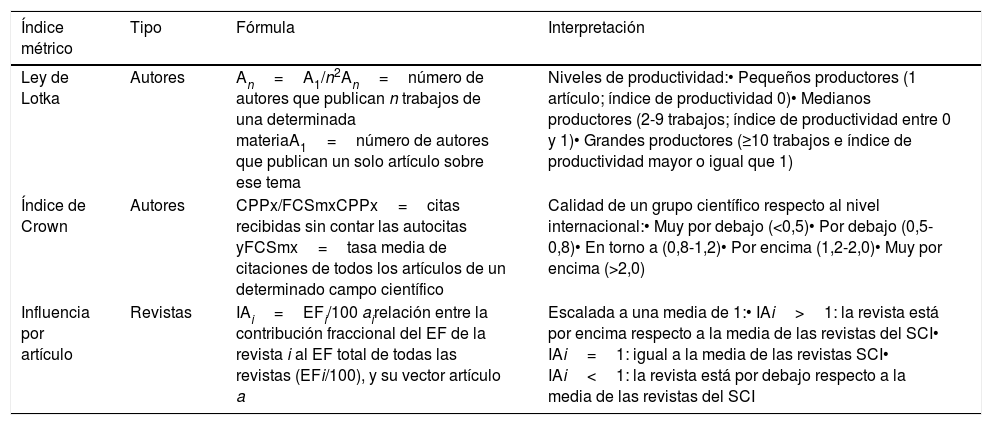Los indicadores bibliométricos surgen para cuantificar la producción científica e intentar evaluar su impacto en la comunidad. De forma general, se pueden dividir en indicadores bibliométricos de autores (individuales y de colaboración) y de revista. Los más extendidos dentro del primer grupo son los que miden la producción individual del autor, como el índice de Crown y el índice h y derivados (índice e, índice h5 y el absoluto o Ab-index, entre otros). Los indicadores bibliométricos creados para intentar valorar la calidad de la revista son los asociados al Journal Citation Reports (como factor de impacto, el impacto ajustado a un campo de investigación, eigenfactor y la influencia por artículo) o asociados a Scopus [Scimago Journal Rank (SJR), el impacto por artículo normalizado por la fuente de cita (SNIP) y CiteScore). El objetivo de este artículo es presentar los principales indicadores bibliométricos, explicar cómo se calculan y discutir sus ventajas y limitaciones.
Bibliometric indicators have been devised to quantify scientific production and to try to evaluate its impact in the community. In general, bibliometric indicators can be classified according to whether the unit of analysis is the author (individual or group) or journal. The most widely used indicators for authors are those that measure an individual author's production, such as the Crown index or the h-index and its derivatives (e-index, h5-index, and the absolute or Ab-index, among others). The bibliometric indicators devised to try to evaluate journal quality are associated with Journal Citation Reports (e.g., impact factor, field-weighted citation impact, Eigenfactor, and article influence) or with Scopus (Scimago Journal Rank (SJR), source normalized impact per paper (SNIP), and CiteScore). This article describes the main bibliometric indicators, explains how they are calculated, and discusses their advantages and limitations.











